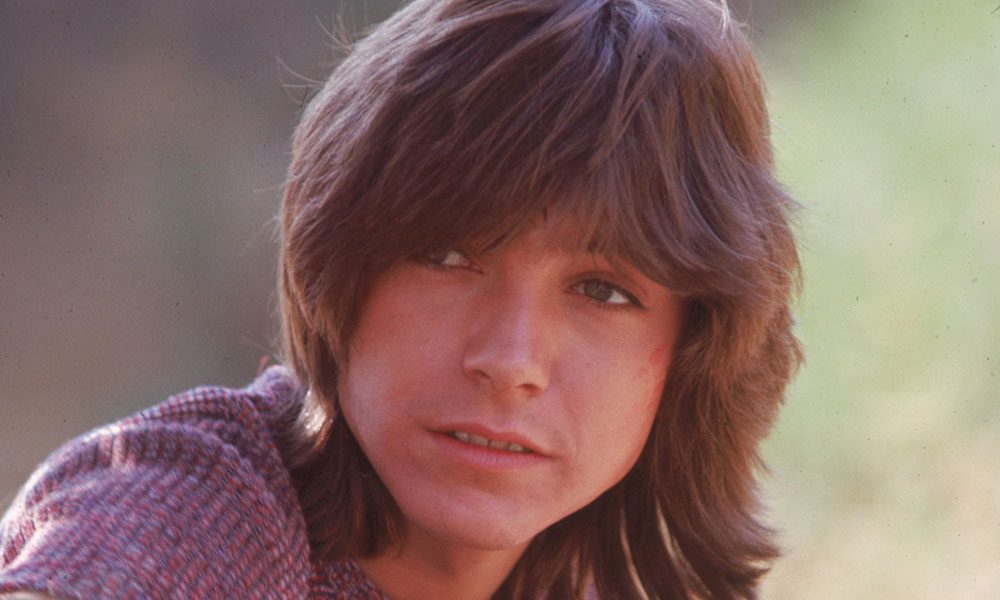
“Mae” is a small, candlelit pause in David Cassidy’s whirlwind—an intimate love-portrait that values gentleness over applause, and tenderness over spectacle.
By the time David Cassidy recorded “Mae”, he had already lived through the strange paradox of early superstardom: being seen everywhere, and yet still searching for a corner of the world that felt private. “Mae” arrived not as a headline-grabbing single, but as an album track—quietly placed on his third solo LP, Dreams Are Nuthin’ More Than Wishes (released October 1973 on Bell Records, produced by Rick Jarrard). The album itself reached a remarkable summit in Britain, topping the UK Albums Chart at No. 1 in late 1973—proof that the public devotion was real, even when the material leaned softer and more reflective than the hit-chasing imagination might expect.
And that is the first “ranking” truth worth stating plainly: “Mae” did not have a defining chart peak of its own, because it wasn’t positioned as a major single. Its power lives in a different kind of measurement—the sort that doesn’t show up on countdown shows, but does show up years later when someone returns to an album and realizes, with a little start, this was the track that understood something real.
The song’s authorship explains its particular texture. “Mae” was written by Gary Montgomery, and on record it runs just under three minutes—brief, almost modest, like a thought you don’t want to over-explain because you’re afraid the explanation will spoil it. In the context of Dreams Are Nuthin’ More Than Wishes, surrounded by well-known material and stage-tested choices, “Mae” stands out as something more personal in tone: not a performance “moment,” but a confession delivered softly enough that you lean in.
There’s a story behind that softness, too—one rooted in how this album was framed. Contemporary descriptions and reissue notes often point out that the original LP packaging included Cassidy’s own handwritten-style reflections about why he chose certain songs, reinforcing the sense that this was meant to be heard as a kind of diary rather than a product. In that light, “Mae” feels like a page you weren’t necessarily meant to read aloud—something tender left between louder sentences.
Musically, “Mae” is built for warmth. It doesn’t reach for drama; it trusts atmosphere. Cassidy’s vocal—often celebrated for its sweetness—takes on a different shade here: less “star,” more human. He sings as if he’s trying not to disturb the feeling he’s describing, as if love itself were something fragile that could be startled away by a raised voice. The arrangement supports that mood with an easy, unhurried glide. Nothing rushes. Nothing insists. The song seems to understand a quietly profound truth: the most meaningful affection is often the least theatrical.
Lyrically, “Mae” is a portrait of devotion that doesn’t posture. It leans into an older, almost storybook language of praise—soft, idealized, openly admiring—yet Cassidy’s delivery keeps it from becoming overly ornate. He doesn’t sell it like a slogan; he offers it like a hand. That is why the track can feel unexpectedly moving: it isn’t trying to convince anyone. It’s simply speaking from inside a feeling that has already settled.
And if you want the deeper meaning, it’s this: “Mae” is less about romance as excitement, and more about romance as refuge. In a career crowded with noise—fans, headlines, expectations—the song imagines love as a still place where a person can finally exhale. Even the name at the center of it, Mae, is short and old-fashioned in a way that suggests steadiness: a name you might whisper rather than shout, the kind of name that belongs to someone remembered with care.
There’s also an afterlife detail that quietly dignifies the song: Cassidy later folded it into a live medley—“Bali Ha’i / Mae”—performed on his 1974 live album Cassidy Live!. That choice matters. In concert, artists tend to keep what works—what holds a room, what carries emotion across distance. For Cassidy to place “Mae” inside a live setting suggests he understood it wasn’t merely album filler. It was a mood he wanted to bring with him onto the stage: a brief hush, a tender detour, a reminder that intimacy can survive even under bright lights.
So, if you come to “Mae” expecting a “hit,” you might miss its purpose. But if you come to it the way one returns to an old photograph—looking not for spectacle, but for truth—you’ll hear what it has been quietly saying all along: that love, when it’s real, doesn’t always arrive with fireworks. Sometimes it arrives as a voice kept gentle on purpose… because the feeling is too precious to risk.